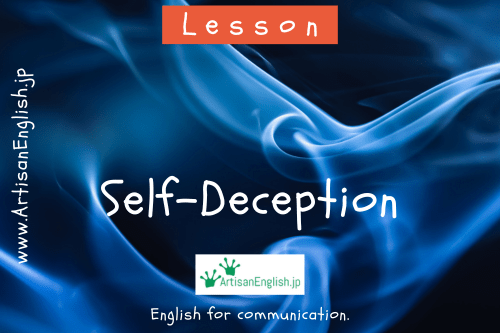
Lesson: Self-Deception
Self-deception is a psychological phenomenon in which we unconsciously change or ignore reality to protect ourselves from uncomfortable truths or maintain a positive self-image. Unlike deliberate lying, self-deception operates at a subconscious level, making it hard for us to recognize when we are doing it. This process can involve denying facts, rationalizing questionable behaviours, or selectively remembering information. While self-deception can help us cope with stress, anxiety, or disappointment, it can also lead to poor decision-making and hinder personal growth. Psychologists suggest that self-deception serves as a defence mechanism, helping us navigate life’s challenges by shielding us from painful realities. However, when relied on too much, it can prevent us from addressing important issues or learning from mistakes. Understanding self-deception is crucial to fostering self-awareness and achieving emotional well-being.
YouTube / iTunes / Spotify / Radio Public / Pocket Casts / Google Podcasts / Breaker / Overcast
Listen to ArtisanEnglish.jp posts & lesson intros here.
Example Article
Each conversation topic is based on a theme. In order to help students acquire a basic understanding of that topic, four media articles are provided for them to read. I will never test you on the articles, but I strongly suggest you book lessons far enough in advance to give yourself enough time to properly prepare. The better prepared you are, the more benefit you will receive from our conversations.
Below is an example article for this conversation topic.

